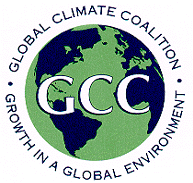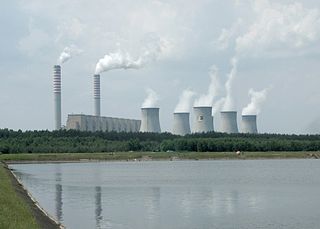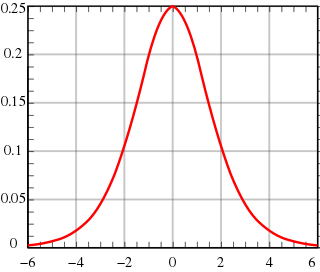
The Global Climate Coalition (GCC) (1989–2001) was an international lobbyist group of businesses that opposed action to reduce greenhouse gas emissions and publicly challenged the science behind global warming. The GCC was the largest industry group active in climate policy and the most prominent industry advocate in international climate negotiations. The GCC was involved in opposition to the Kyoto Protocol, and played a role in blocking ratification by the United States. The coalition knew it could not deny the scientific consensus, but sought to sow doubt over the scientific consensus on climate change and create manufactured controversy. The GCC dissolved in 2001 after membership declined in the face of improved understanding of the role of greenhouse gases in climate change and of public criticism.
Kerosene, also known as paraffin, lamp oil, and coal oil, is a combustible hydrocarbon liquid which is derived from petroleum. It is widely used as a fuel in industry as well as households. Its name derives from Greek: κηρός (keros) meaning wax, and was registered as a trademark by Canadian geologist and inventor Abraham Gesner in 1854 before evolving into a genericized trademark. It is sometimes spelled kerosine in scientific and industrial usage. The term kerosene is common in much of Argentina, Australia, Canada, India, New Zealand, and the United States, while the term paraffin is used in Chile, eastern Africa, South Africa, Norway, and in the United Kingdom. The term lamp oil, or the equivalent in the local languages, is common in the majority of Asia. Liquid paraffin is a more viscous and highly refined product which is used as a laxative. Paraffin wax is a waxy solid extracted from petroleum.

Petroleum is a naturally occurring, yellowish-black liquid found in geological formations beneath the Earth's surface. It is commonly refined into various types of fuels. Components of petroleum are separated using a technique called fractional distillation, i.e. separation of a liquid mixture into fractions differing in boiling point by means of distillation, typically using a fractionating column.
Propane is a three-carbon alkane with the molecular formula C3H8. It is a gas at standard temperature and pressure, but compressible to a transportable liquid. A by-product of natural gas processing and petroleum refining, it is commonly used as a fuel. Propane is one of a group of liquefied petroleum gases (LP gases). The others include butane, propylene, butadiene, butylene, isobutylene, and mixtures thereof.

A fossil fuel is a fuel formed by natural processes, such as anaerobic decomposition of buried dead organisms, containing energy originating in ancient photosynthesis. The age of the organisms and their resulting fossil fuels is typically millions of years, and sometimes exceeds 650 million years. Fossil fuels contain high percentages of carbon and include petroleum, coal, and natural gas. Other commonly used derivatives include kerosene and propane. Fossil fuels range from volatile materials with low carbon to hydrogen ratios like methane, to liquids like petroleum, to nonvolatile materials composed of almost pure carbon, like anthracite coal. Methane can be found in hydrocarbon fields either alone, associated with oil, or in the form of methane clathrates.

A hydrogen vehicle is a vehicle that uses hydrogen as its onboard fuel for motive power. Hydrogen vehicles include hydrogen-fueled space rockets, as well as automobiles and other transportation vehicles. The power plants of such vehicles convert the chemical energy of hydrogen to mechanical energy either by burning hydrogen in an internal combustion engine, or, more commonly, by reacting hydrogen with oxygen in a fuel cell to run electric motors. Widespread use of hydrogen for fueling transportation is a key element of a proposed hydrogen economy.

A zero-emissions vehicle, or ZEV, is a vehicle that emits no exhaust gas from the onboard source of power. Harmful pollutants to the health and the environment include particulates (soot), hydrocarbons, carbon monoxide, ozone, lead, and various oxides of nitrogen. Although not considered emission pollutants by the original California Air Resources Board (CARB) or U.S. Environmental Protection Agency (EPA) definitions, the most recent common use of the term also includes volatile organic compounds, several air toxics, and global pollutants such as carbon dioxide and other greenhouse gases.

A green vehicle, or clean vehicle, or eco-friendly vehicle or environmentally friendly vehicle is a road motor vehicle that produces less harmful impacts to the environment than comparable conventional internal combustion engine vehicles running on gasoline or diesel, or one that uses certain alternative fuels. Presently, in some countries the term is used for any vehicle complying or surpassing the more stringent European emission standards, or California's zero-emissions vehicle standards, or the low-carbon fuel standards enacted in several countries.

A fossil fuel power station is a thermal power station which burns a fossil fuel such as coal, natural gas, or petroleum to produce electricity. Central station fossil fuel power plants are designed on a large scale for continuous operation. In many countries, such plants provide most of the electrical energy used. Fossil fuel power stations have machinery to convert the heat energy of combustion into mechanical energy, which then operates an electrical generator. The prime mover may be a steam turbine, a gas turbine or, in small plants, a reciprocating internal combustion engine. All plants use the energy extracted from expanding gas, either steam or combustion gases. Although different energy conversion methods exist, all thermal power station conversion methods have efficiency limited by the Carnot efficiency and therefore produce waste heat.
The methanol economy is a suggested future economy in which methanol and dimethyl ether replace fossil fuels as a means of energy storage, ground transportation fuel, and raw material for synthetic hydrocarbons and their products. It offers an alternative to the proposed hydrogen economy or ethanol economy.

The FreedomCAR and Vehicle Technologies (FCVT) is a U.S. national Office of Energy Efficiency and Renewable Energy program developing more energy efficient and environmentally friendly highway transportation technologies that will enable the U.S to use less petroleum. It is currently run by Michael Berube. The long-term aim is to develop "leap frog" technologies that will provide Americans with greater freedom of mobility and energy security, while lowering costs and reducing impacts on the environment.

Who Killed the Electric Car? is a 2006 documentary film that explores the creation, limited commercialization, and subsequent destruction of the battery electric vehicle in the United States, specifically the General Motors EV1 of the mid-1990s. The film explores the roles of automobile manufacturers, the oil industry, the federal government of the United States, the California government, batteries, hydrogen vehicles, and consumers in limiting the development and adoption of this technology.

An alternative fuel vehicle is a vehicle that runs on a fuel other than traditional petroleum fuels ; and also refers to any technology of powering an engine that does not involve solely petroleum. Because of a combination of factors, such as environmental concerns, high oil prices and the potential for peak oil, development of cleaner alternative fuels and advanced power systems for vehicles has become a high priority for many governments and vehicle manufacturers around the world.
A low-carbon economy (LCE), low-fossil-fuel economy (LFFE), or decarbonised economy is an economy based on low carbon power sources that therefore has a minimal output of greenhouse gas (GHG) emissions into the biosphere, but specifically refers to the greenhouse gas carbon dioxide. GHG emissions due to anthropogenic (human) activity are the dominant cause of observed global warming since the mid-20th century. Continued emission of greenhouse gases may cause long-lasting changes around the world, increasing the likelihood of severe, pervasive and irreversible impacts for people and ecosystems.

The mitigation of peak oil is the attempt to delay the date and minimize the social and economic effects of peak oil by reducing the consumption of and reliance on petroleum. By reducing petroleum consumption, mitigation efforts seek to favorably change the shape of the Hubbert curve, which is the graph of real oil production over time predicted by Hubbert peak theory. The peak of this curve is known as peak oil, and by changing the shape of the curve, the timing of the peak in oil production is affected. An analysis by the author of the Hirsch report showed that while the shape of the oil production curve can be affected by mitigation efforts, mitigation efforts are also affected by the shape of Hubbert curve.
The Indian Institute of Petroleum (IIP), established in 1960, is one of the constituent laboratories of the Council of Scientific and Industrial Research (CSIR), dedicated to R&D in the hydrocarbon sector.

Mark Kenneth Jaccard is a professor of sustainable energy in the School of Resource and Environmental Management (REM) at Simon Fraser University, Vancouver, British Columbia, Canada. Dr. Jaccard develops and applies models that assess sustainability policies for energy and material.
Carbon-based fuel is any fuel principally from the oxidation or burning of carbon. Carbon-based fuels are of two main kinds, biofuels and fossil fuels. Whereas biofuels are derived from recent-growth organic matter and are typically harvested, as with logging of forests and cutting of corn, fossil fuels are of prehistoric origin and are extracted from the ground, the principal fossil fuels being oil, coal, and natural gas.

The American Clean Energy and Security Act of 2009 (ACES) was an energy bill in the 111th United States Congress that would have established a variant of an emissions trading plan similar to the European Union Emission Trading Scheme. The bill was approved by the House of Representatives on June 26, 2009 by a vote of 219-212, but was never brought to the floor of the Senate for discussion or a vote.

A low-carbon fuel standard (LCFS) is a rule enacted to reduce carbon intensity in transportation fuels as compared to conventional petroleum fuels, such as gasoline and diesel. The most common low-carbon fuels are alternative fuels and cleaner fossil fuels, such as natural gas. The main purpose of a low-carbon fuel standard is to decrease carbon dioxide emissions associated with vehicles powered by various types of internal combustion engines while also considering the entire life cycle, in order to reduce the carbon footprint of transportation.















